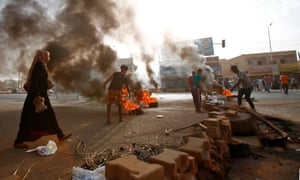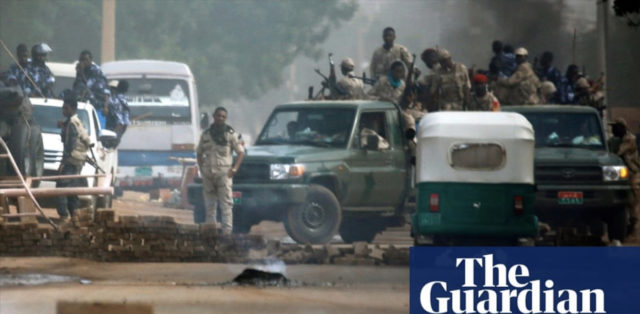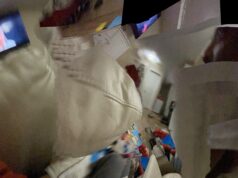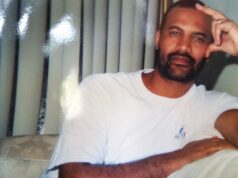Medical association says dozens killed during attempt to disperse sit-in outside defence ministry
The guardian || At least 30 people have died after Sudanese security forces launched a massive crackdown against protesters at a central Khartoum sit-in..
Heavily armed paramilitaries attacked the site of a sit-in in the capital that has been the centre of a campaign to bring democratic reform shortly after dawn on Monday, firing teargas and live ammunition.
Witnesses reported that the security personnel belonged to the feared Rapid Support Forces(RSF), a paramilitary force that was heavily armed by Omar al-Bashir, the former president.
Bashir’s repressive 30-year rule ended in April when he was ousted by the army following months of massive pro-democracy demonstrations in Khartoum and elsewhere.
Factions within the military appear to have decided to put an end to the pro-reform protests after months of negotiations with civilian leaders and activists for transition to democracy.
Pro-reform campaigners remained defiant despite the violence.
“This is a critical point in our revolution. The military council has chosen escalation and confrontation … Now the situation is us or them; there is no other way,” said Mohammed Yousef al-Mustafa, a spokesman for the Sudanese Professionals’ Association, which has spearheaded the protests.
A medical association said that at least 30 people had been killed, including an eight-year-old child, but activists say the true number is likely to be much higher with bodies still unrecovered from the protest site attacked in the early morning.
There are also claims that many bodies were thrown into the river Nile by security forces.
Hospitals in central Khartoum struggled to cope with the numbers of injured and appealed for surgeons to volunteer to help.
“Wounded people are lying on the ground in the reception area as there are not enough beds,” sad Azza al-Amel, a doctor at the Royal Care hospital.
The RSF have been accused of systematic human rights abuses. They are led by Mohamed Hamdan Dagalo, known as Hemedti, who also serves as deputy head of the transitional military council, the country’s governing committee.
During the afternoon, the RSF were reported to have taken up positions throughout Khartoum and the neighbouring city Omdurman, beating traders and other residents.
Doctors said the RSF had also entered hospitals, firing weapons, beating medical staff and injuring protesters.
The news of the crackdown sparked unrest around Khartoum. Hundreds of protesters were also reported to have blocked roads with stones and burning tyres in Omdurman, the twin city neighbouring the Sudanese capital.
Live images broadcast by Arab television stations showed tents used by the protesters on fire, as other demonstrators ran away from the scene.
In footage on social media, bloodied protesters could be seen on the ground as vehicles manned by armed men in uniforms drove at speed through the streets. Several video clips showed groups of RSF fighters beating and shooting at civilians, including traders.

A witness living in the Burri neighbourhood in east Khartoum said he could “hear the sound of gunfire and I see a plume of smoke rising from the area of the sit-in”.
People in Omdurman reported extensive shooting in the streets of the city.
“There is no transportation, all the streets are blocked by protesters responding to the SPA’s call … Tyres are burning,” said one resident.
There were also reports of security forces breaking up demonstrations elsewhere in Sudan, though it was unclear if there had been casualties.
Foreign journalists in Khartoum said they were being confined to a hotel by unidentified security personnel.
The Sudanese Professionals Association, one of the main pro-reform groups, called on Sudanese people to take part in “total civil disobedience” to topple the military council and for people for take to the streets to protest.
The Sudanese Air Pilots Association was reported to have decided to support the call, which could severely affect flights to Khartoum. Other professional bodies also said they would strike in protest at fresh outbreaks of violence.

























